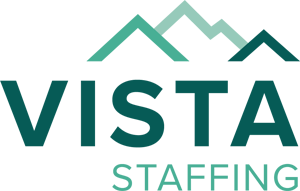
Travel Wages Normalize Post-Pandemic
Published December 10, 2024
The COVID-19 pandemic brought seismic shifts to the healthcare industry, reshaping the way nurses and technologists worked, lived, and earned. Among the most profound changes was the surge in demand for travel professionals. This was especially true for those specializing in cath lab, electrophysiology (EP), and interventional radiology (IR) who were faced with a backlog of elective procedures canceled during the early pandemic. Five years later, the dust has settled, and wages for these highly sought-after specialists are stabilizing, signaling a new normal in the healthcare staffing market.
The Boom: Pandemic Pay Peaks
During the height of the pandemic, healthcare facilities scrambled to meet surging patient needs. With burnout driving permanent staff to seek alternative options, travel nurses and technologists filled critical gaps. Wages skyrocketed as hospitals offered lucrative contracts to attract these professionals. For cath lab, EP, and IR specialists, demand reached unprecedented levels. According to Springboard Health’s 2021 Wage Report, travel professionals earned 71.61% more than permanent workers.
This wage surge was unsustainable long-term. The question wasn’t if the market would normalize but when.
The Shift: What’s Driving Wage Normalization?
- Increased Staffing Stability
- Supply Meets Demand
The financial allure of pandemic-era contracts attracted more professionals to travel roles. As the travel workforce grew, the once-scarce pool of cath lab, EP, and IR specialists became more abundant. This increased supply naturally caused compensation to lower from the levels experienced mid-pandemic. - Budget Adjustments
Federal funding and emergency budgets that supported inflated travel wages during the pandemic have significantly decreased. Hospitals are now under pressure to control costs while maintaining quality care. This shift has prompted a return to market-rate contracts. - Changing Patient Needs
With the acute phase of the pandemic over, healthcare facilities are seeing more predictable patient volumes. Elective procedures, which were paused during the early pandemic, have resumed, but overall workloads for specialists in cath lab, EP, and IR are now more manageable. This steadying of demand has contributed to wage stabilization.
Hospitals have invested heavily in rebuilding their full-time staff. Many healthcare systems now focus on retention strategies, such as competitive permanent salaries, flexible schedules, and expanded benefits. As full-time staffing levels improve, the reliance on travel professionals has lessened, reducing the urgency to offer premium pay.
The Current State of Travel Wages
For travel nurses and technologists, wages are no longer at their peak, but they remain competitive. Specialists in high-demand areas like cath lab, electrophysiology, and interventional radiology still command strong rates, though these are now more reflective of regional averages and skill-level expectations rather than emergency-driven spikes.
What Normalization Means for Professionals
While wage normalization might feel like a downturn compared to pandemic highs, the current landscape still offers unique opportunities for travel professionals. Travel assignments continue to provide competitive pay, flexibility, and career growth. Moreover, hospitals now prioritize creating positive work environments, recognizing the value of retaining both full-time and travel staff. For technologists and nurses specializing in cath lab, EP, and IR, the key to thriving in this market is adaptability. Continuing education, certifications, and willingness to travel to high-demand areas will ensure these professionals remain indispensable in an evolving healthcare landscape.
Looking Ahead: A Balanced Future
The normalization of wages marks a shift toward sustainability in healthcare staffing. For travel nurses and technologists, this new normal isn’t a loss—it’s a recalibration. Stable wages allow hospitals to focus on long-term planning and ensure equitable pay for all healthcare professionals. Meanwhile, the travel industry remains a vital part of the system, offering specialists the flexibility and adventure they value.
As we reflect on the past five years, it’s clear that the pandemic forever changed the healthcare industry. Wages may have normalized, but the need for skilled, compassionate professionals remains as critical as ever. Whether in cath labs, EP suites, or IR departments, these experts continue to play a pivotal role in delivering life-saving care.
 company
company 
 866.465.6286
866.465.6286











